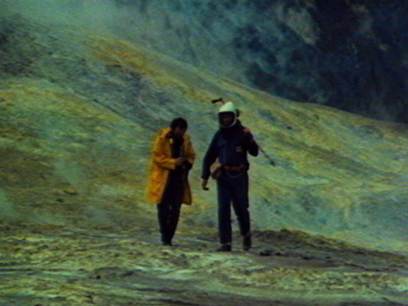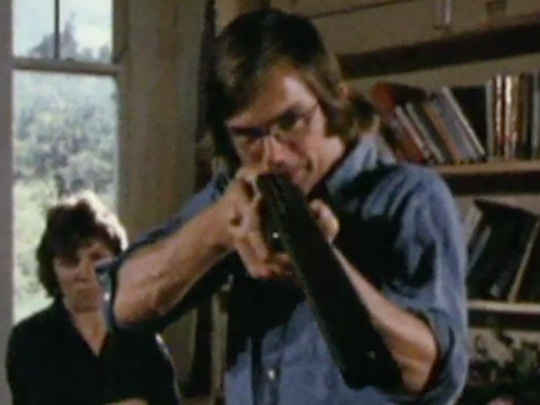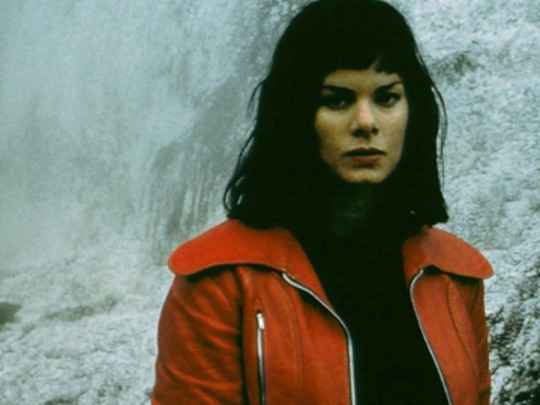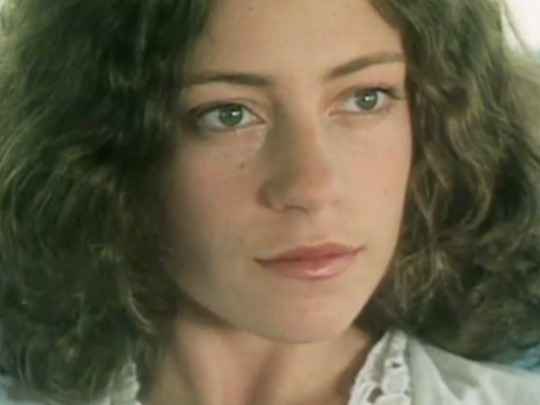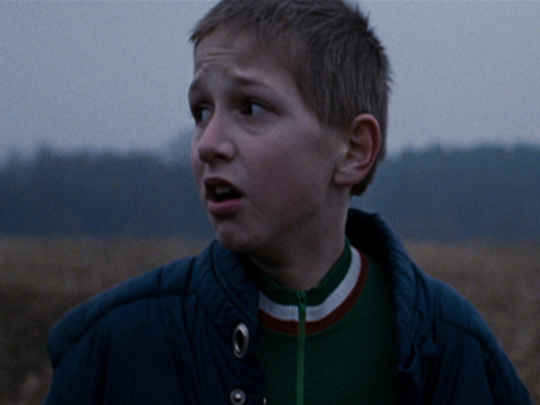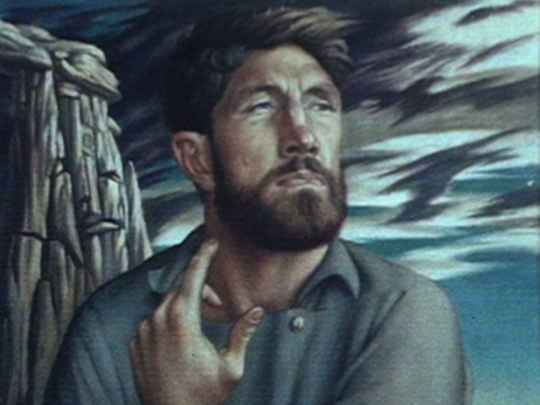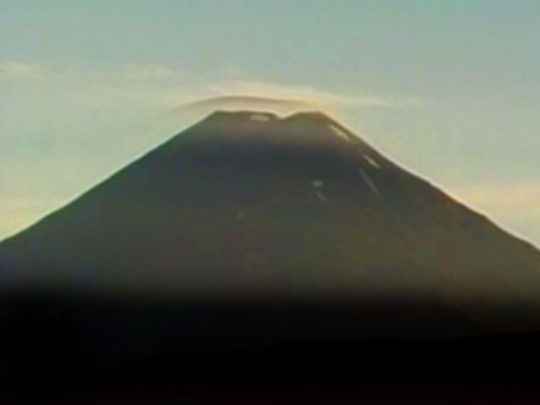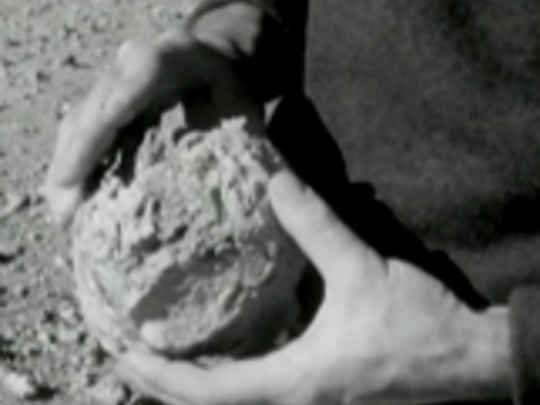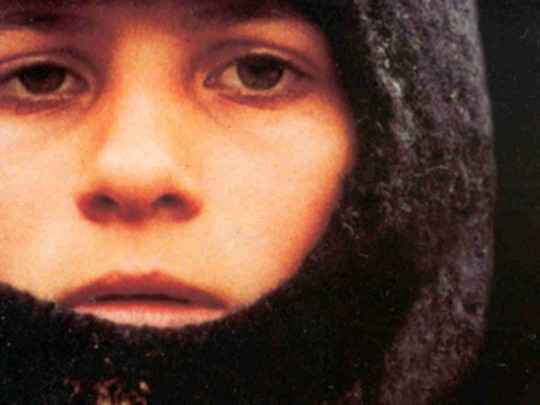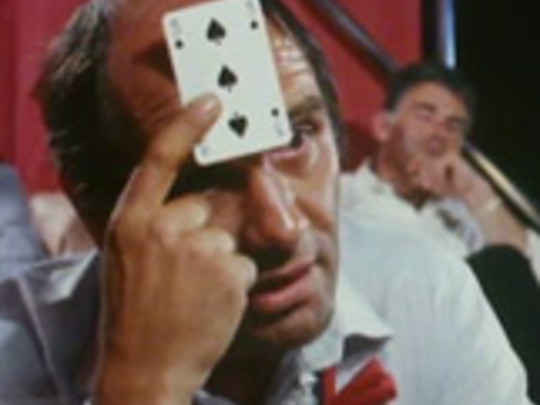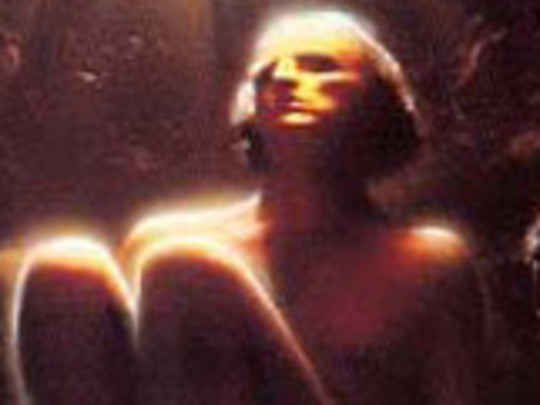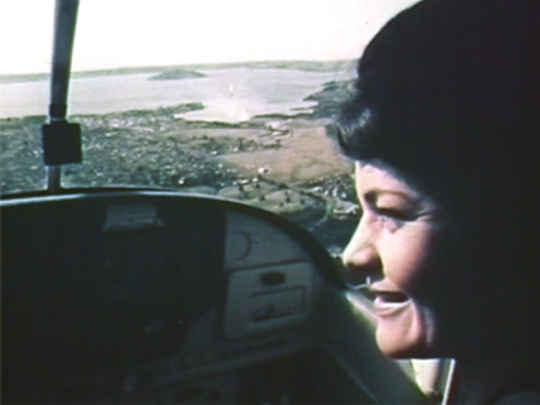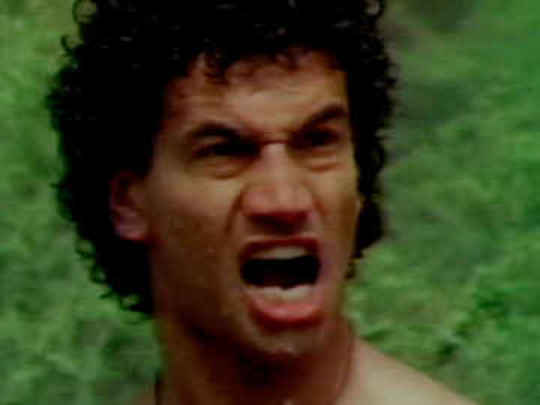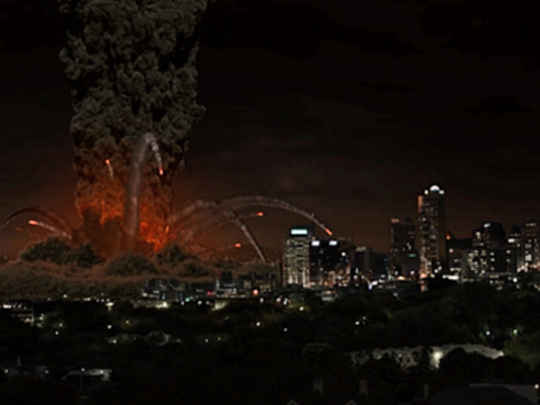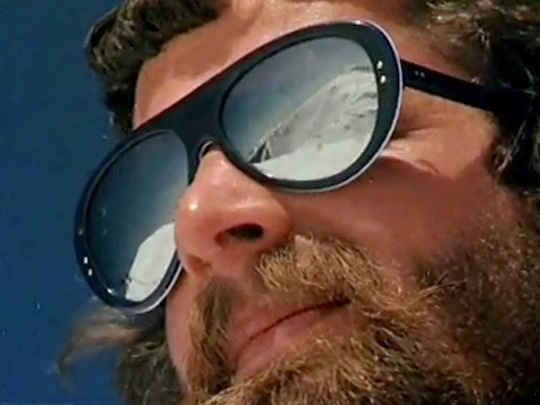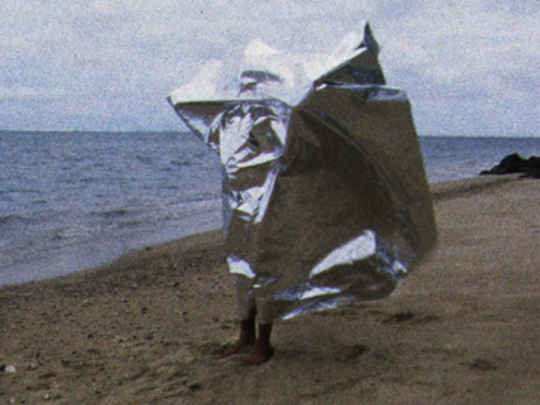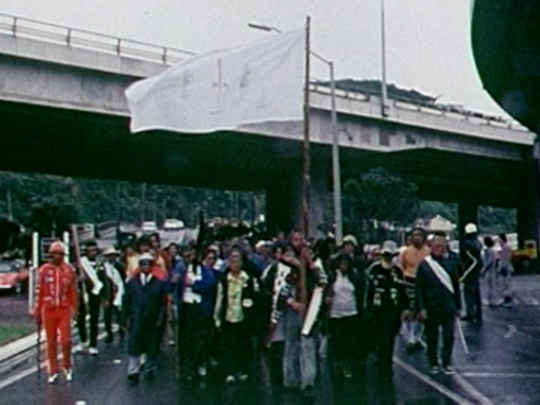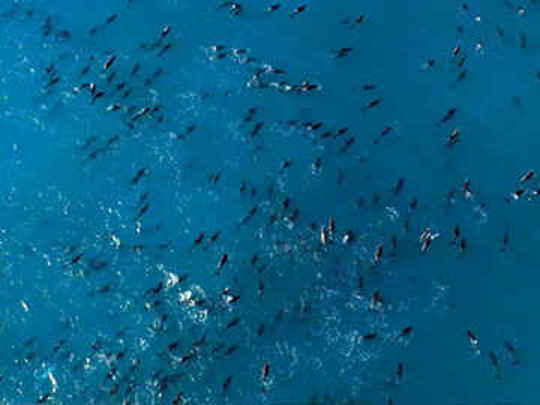Strata
Film (Excerpts) – 1983
They [producer John Maynard and director Geoff Stevens] see this [ideas] as the essential ingredient in filmmaking — in contrast to many other feature filmmakers, who perhaps consider the commercial viability of the film as being paramount. Recent successful New Zealand films have tended to reflect in a somewhat slanted way the values of our culture — male domination, the thrill of a car chase, violence, sexual stereotypes and grubby humour. New Zealand society is obviously more complex. The new language of cinema gives writers and filmmakers a chance to explore this complexity.
– Writer Rosemary Hemmings, in Art New Zealand 24, Winter 1982
Looking like an arid planet, the inhospitable landscape is the perfect symbolic setting for this allegorical film, with the eeriness of the North Island central plateau made even more alien by footage of smouldering White Island, shot at no small cost to the nerves of the crew.
– Writer Helen Martin, in 1997 book New Zealand Film 1912 - 1996, page 93
Now I'm actually happiest when I'm in the dark, thinking. The world ceases to exist, vanishes. I feel like I'm carving the thoughts out of the dark with a spoon. Beautiful moment of freedom.
– Victor (Nigel Davenport) in an interview with Margaret (Judy Morris)
Hey couldn't you do us a favour and come back? ... There's bugger all out there.
– One of the orderlies (Philip Holder), after the group set out from the quarantine facility
I've grown accustomed to the comfort of speaking with somebody.
– Victor (Nigel Davenport) hints that he's going to miss Margaret (Judy Morris)
I don't like this land. It is dead. It is not good.
– Thomas (Czech mime artist Ctibor Turba) while lost on the Volcanic Plateau
...when the hell do we get out of here? It's been four days since the rest left.
– Keith (Roy Billing) expresses frustration at being holed up in the quarantine facility after a plane flight
Initially titled Figures Beyond Glass, Strata is a 'journey' film posing questions about the nature of reality, freedom, relationships and happiness and about the struggle for survival. Plot details slowly unfold as the lost travellers are reduced to their basic instincts by the limitations of the environment, while to Margaret and Steve the environment is merely a setting for studying a human subject.
– Writer Helen Martin, in 1997 book New Zealand Film 1912 - 1996, page 93
Strata is pervaded with a sense of mystery; it more than ever is an essay in surrealism, in what might be called 'magic realism': and this is furthered by [co-writer Ester] Krumbachova's propensity for using symbols to give the impression of things not being quite what they seem; and [Geoff] Stevens's concern as a director to use colours and locations "not as overt symbols but as nuances" (an example is the employment of three tents where the vulcanologists carry out their conversation — in green, red and brown, depending on the particular emotional state).
– Writer Rosemary Hemmings, in Art New Zealand 24, Winter 1982
